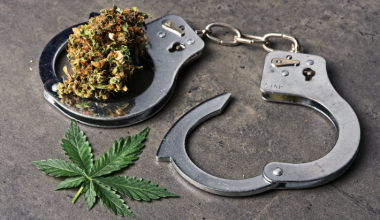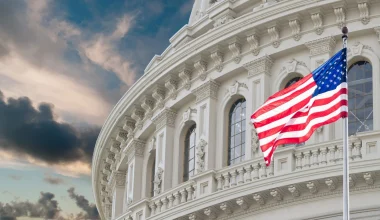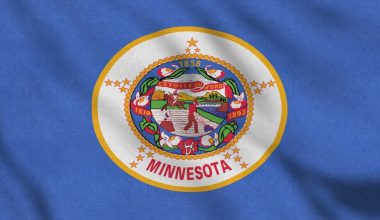This week’s update highlights important legislative advancements in Illinois, Utah, South Dakota, and Kentucky, focuses on upcoming hearings, and provides updates on several other important bills moving forward across the country.
Highlights
Kansas
Senate Bill 560 provides for licensure and regulation of the cultivation, processing, distribution, sale and use of medical marijuana to qualified patients.
Update: SB 560 was heard on Wednesday, March 16th in the Senate Federal & State Affairs Committee.
Send a message to your lawmakers in support of this effort.
Kentucky
HB 136 creates a medical cannabis access program while also exempting patients’ purchase of cannabis medicine from taxation. Statewide polling data finds that 90 percent of respondents favor allowing Kentuckians to legally obtain marijuana for medical use.
Update: After much debate, the House floor voted to advance HB 136 with a vote of 59 to 34. The bill now heads to the Senate.
“Now that the issue of medical marijuana will go to the Kentucky State Senate for the second time, it is our continued hope that Kentucky’s Senators will let our state out of the darkness and into the future. We will continue to fight alongside our fellow marijuana advocacy groups to secure safe, and more inclusive access for ALL of Kentucky’s patients,” says Lauren Morgan Bratcher, Deputy Director of Kentucky NORML. (Read more.)
Send your legislator a message of support.
Maryland
Members of the state’s House of Delegates have given approval to a pair of legalization bills. The first, House Bill 1, lets voters decide on whether to legalize cannabis possession and sales via a binding referendum question on the November ballot. Statewide polling from October finds that Maryland residents support such a plan by a margin of nearly 2 to 1. A second bill, HB 837, was also advanced. It compliments HB 1 by setting up a limited framework for legalization, establishing personal possession limits, and providing for the expungement of past convictions, among other issues. Lawmakers have made several changes to the bill to comport with requests from NORML and other reform organizations, and we are continuing to ask for additional reforms.
Update: The chamber debated the proposals, rejecting several GOP-led amendments and advanced them to the Senate with votes of 96-34 and 92-37, respectively. The Senate Finance Committee has scheduled hearings for the bill for Wednesday, March 23 at 1pm.
Send a message to your lawmakers requesting improvement to this legislation.
New Jersey
S313 allows public insurance programs to cover medical marijuana related costs by reimbursement through the Catastrophic Illness in Children Relief Fund, PAAD, Senior Gold and VCCO.
Update: S313 unanimously passed the Senate Health and Human Services Committee on 3/10.
Send a message to your lawmakers in support of this effort.
Rhode Island
The “Rhode Island Cannabis Act” (S 2430 & H 7593), has been introduced in the House and Senate. It establishes a regulated adult-use cannabis market that permits adults to possess up to one ounce of cannabis for personal use, and it establishes an independent commission to regulate the commercial cultivation, manufacture, and retail sale of cannabis products. The bill also provides for expungement for prior cannabis possession convictions.
Update: Members of the Senate Judiciary Committee have continued to debate this bill but have not yet advanced it out of committee.
Send a message to your lawmakers in support of this effort.
South Dakota
Lawmakers in conference committee advanced a final version of SB 24 to Gov. Noem. The amended language of the bill permits qualified patients to home cultivate up to four cannabis plants (two mature, two immature) for their own personal medical use.
It is imperative that the home cultivation language be kept in the legislation!
Send a message to Governor Noem requesting they maintain patients’ home-cultivation rights,
Utah
Update: Two bills currently await Governor Cox’s signature.
Senate Bill 46 strengthens protections for medical cannabis patients, and makes other technical changes to the state’s nascent medical cannabis access program.
Send a message to ask Gov Cox to sign this legislation.
Senate Bill 195 expands access to medical marijuana within the state by expanding the qualifying conditions to include those experiencing acute pain that would otherwise be treated with opioids, and requires that medical providers consider a patient’s history with opioids and substance use before recommending medical cannabis.
Send a message to ask Gov Cox to sign this legislation.
Additional
California
Current California law penalizes those actions for any person between 18 and 21 years of age as a misdemeanor, unless other factors such as prior offenses are present that would warrant a felony charge. If passed, Assembly Bill 1725 would increase the severity of penalization for those age 18 or older from a misdemeanor to a felony regardless of whether or not a defendant has prior offenses.
Assembly Bill 1725 increases the criminal penalty for persons 18 years of age or older who plant, cultivate, harvest, dry, or process more than six cannabis plants. The penalty would be increased from misdemeanor to felony level. NORML opposes this legislation.
Update: A hearing had been scheduled for AB 1725, but it was canceled at the request of the bill’s sponsor.
Illinois
Current law requires that individuals petitioning for expungement or sealing of records must pass a drug test 30 days prior to filing the petition.
House Bill 4392 provides individuals with felony records the opportunity to expunge or seal their criminal records even if they test positive for cannabis. If passed, the bill would allow those individuals to petition for the expungement or sealing of felony records for a violation of the Illinois Controlled Substances Act, the Methamphetamine Control and Community Protection Act, or the Cannabis Control Act (or felony records of a qualified probation for a felony drug offense).
Send a message to your lawmakers in support of this effort.
Georgia
Under state law, those with qualifying medical conditions may possess 20 ounces of infused cannabis oils containing not more than 5 percent THC and an amount of CBD equal to or greater than the amount of THC. The law permits the establishment of up to 30 state-licensed retailers of high-CBD/low-THC oil products to qualified patients. However, no such retailers exist yet within the state, leaving qualified patients without access to their medicine.
Legislation is pending, House Bill 1425 and Senate Bill 609, to revise provisions relating to Class 1 and Class 2 production licenses by eliminating the previous competitive application process and asking the Commission to purchase or obtain low level THC oil in such quantities as are necessary to reasonably meet the needs of all registered patients on the Low THC Oil Patient Registry.
Send a message to your lawmakers in support of this effort.
Maryland
Senate Bill 772 (companion legislation House Bill 1325) provides that the use of marijuana by a parent or guardian does not qualify as neglect, except under additional specific circumstances.
Update: SB 772 was favorably reported with amendments out of the Senate Judicial Proceedings Committee.
Send a message to your lawmakers in support of this effort.
Minnesota
Senate File 3981 expands patients’ access to the state’s medical marijuana program by allowing qualified patients from tribal communities to purchase medicine outside of their reservation, and it also allows a tribe the right to develop cannabis access programs under tribal law.
Send a message to your lawmakers in support of this effort.
Vermont
Current state law in Vermont provides a THC cap of 30 percent for cannabis flower and 60 percent in solid concentrates for adult-use products.
HB 548 allows solid concentrate cannabis products over 60 percent THC and oil-based cannabis products, with exceptions, to be removed from the prohibited products list. This bill would also exempt solid concentrates, oils, and tinctures from the 50 mg THC limit, per package, further expanding adults’ access to regulated cannabis products.
Update: HB 548 passed the House and now heads to the Senate.
Send a message to your lawmakers in support of this effort.
Wisconsin
Current state law does not allow patients’ access to medical cannabis, but permits CBD access for any medical condition for which a physician provides a recommendation.
Senate Bill 1034 creates a medical marijuana access program. It authorizes physicians, physician assistants, and certified advanced practice nurse prescribers to provide a written recommendation for a patient to use medical marijuana for qualifying medical conditions. This extends to minors who are eligible to receive a recommendation for the use of medical marijuana if certain requirements are met. This bill also provides for the licensed production and distribution of medical cannabis products.
Send a message to your lawmakers in support of this effort.
Senate Bill 1035 creates a medical use defense to THC-related prosecutions for a person who is registered with the Department of Health Services as having a specified debilitating medical condition or undergoing a specified debilitating treatment. The bill also prohibits the arrest or prosecution of such a person for those offenses.
Send a message to your lawmakers in support of this effort.
Learn how to become a member of NORML. Make a donation towards our important work. Shop at the NORML store. Take action!
Related
Medical Disclaimer:
The information provided in these blog posts is intended for general informational and educational purposes only. It is not a substitute for professional medical advice, diagnosis, or treatment. Always seek the advice of your physician or other qualified healthcare provider with any questions you may have regarding a medical condition. The use of any information provided in these blog posts is solely at your own risk. The authors and the website do not recommend or endorse any specific products, treatments, or procedures mentioned. Reliance on any information in these blog posts is solely at your own discretion.






